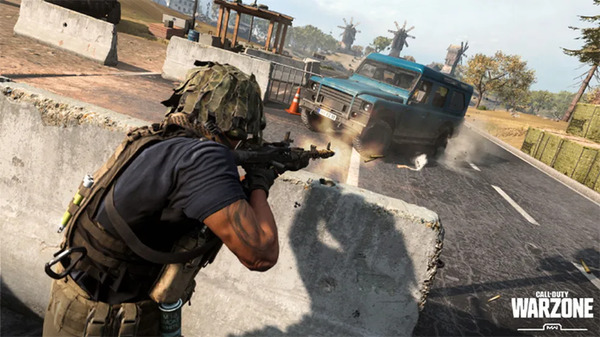Advertisement
Popular Now
"Call of Duty: Warzone," launched in March 2020, quickly became one of the leading battle royale games, attracting millions of players with its fast-paced gameplay and intricate mechanics. However, the introduction of skill-based matchmaking (SBMM) has ignited a heated debate within the community. This article explores the complexities surrounding SBMM in "Warzone," examining its implementation, effects on player experience, and the ongoing discussions within the gaming community.

 The introduction of SBMM has polarized the "Warzone" community. Casual players, who may prefer a more relaxed gameplay experience, often express frustration with being matched against highly skilled opponents. This mismatch can lead to rapid eliminations, reducing the enjoyment of the game.
Conversely, competitive players appreciate the challenge that SBMM provides. For them, facing opponents of similar skill levels enhances the competitive nature of the game and offers a fairer playing field. This duality highlights a fundamental issue: "Warzone" must cater to both casual and competitive players, which is inherently challenging.
The introduction of SBMM has polarized the "Warzone" community. Casual players, who may prefer a more relaxed gameplay experience, often express frustration with being matched against highly skilled opponents. This mismatch can lead to rapid eliminations, reducing the enjoyment of the game.
Conversely, competitive players appreciate the challenge that SBMM provides. For them, facing opponents of similar skill levels enhances the competitive nature of the game and offers a fairer playing field. This duality highlights a fundamental issue: "Warzone" must cater to both casual and competitive players, which is inherently challenging.
 The introduction of SBMM in "Warzone" has sparked intense discussions within the gaming community. Forums, social media platforms, and streaming channels are filled with debates about the effectiveness of SBMM and its impact on the overall experience.
Many players have taken to social media to voice their opinions, with some advocating for the removal of SBMM entirely, while others support its continued use. This community feedback is crucial for developers to understand the sentiment around SBMM and its ramifications on player satisfaction.
The introduction of SBMM in "Warzone" has sparked intense discussions within the gaming community. Forums, social media platforms, and streaming channels are filled with debates about the effectiveness of SBMM and its impact on the overall experience.
Many players have taken to social media to voice their opinions, with some advocating for the removal of SBMM entirely, while others support its continued use. This community feedback is crucial for developers to understand the sentiment around SBMM and its ramifications on player satisfaction.

The Rise of Skill-Based Matchmaking
Skill-based matchmaking emerged as a solution to the frustrations players experienced in competitive gaming. Prior to its implementation in "Warzone," players often found themselves in matches with highly skilled opponents, leading to feelings of frustration and unfairness. SBMM aims to create a more balanced gaming environment by pairing players of similar skill levels, theoretically ensuring a more enjoyable experience. However, the transition to SBMM in "Warzone" has been contentious. Many players feel that it disrupts the natural flow of the game, affecting not only individual performance but also overall enjoyment. The desire for balanced matches clashes with the casual playstyle that many players appreciate.Understanding Skill-Based Matchmaking Mechanics
To comprehend the controversy surrounding SBMM, it’s essential to understand how it functions. SBMM algorithms typically consider various factors, including a player's kill-to-death ratio (K/D), win rate, and overall performance in previous matches. This data is used to create lobbies that match players of similar skill levels. While this approach aims to promote fairness, it can lead to unintended consequences. Players may find themselves in lobbies where every opponent is highly skilled, resulting in a challenging experience that can feel discouraging. Additionally, the use of hidden matchmaking ratings (MMRs) means that players are often unaware of how their performance is evaluated.The Duality of Experience: Casual vs. Competitive Play
 The introduction of SBMM has polarized the "Warzone" community. Casual players, who may prefer a more relaxed gameplay experience, often express frustration with being matched against highly skilled opponents. This mismatch can lead to rapid eliminations, reducing the enjoyment of the game.
Conversely, competitive players appreciate the challenge that SBMM provides. For them, facing opponents of similar skill levels enhances the competitive nature of the game and offers a fairer playing field. This duality highlights a fundamental issue: "Warzone" must cater to both casual and competitive players, which is inherently challenging.
The introduction of SBMM has polarized the "Warzone" community. Casual players, who may prefer a more relaxed gameplay experience, often express frustration with being matched against highly skilled opponents. This mismatch can lead to rapid eliminations, reducing the enjoyment of the game.
Conversely, competitive players appreciate the challenge that SBMM provides. For them, facing opponents of similar skill levels enhances the competitive nature of the game and offers a fairer playing field. This duality highlights a fundamental issue: "Warzone" must cater to both casual and competitive players, which is inherently challenging.
Casual Players’ Frustrations
Casual players frequently voice concerns about the impact of SBMM on their experience. Many feel that they should have the option to enjoy matches without the pressure of facing elite players. The result is a gaming experience that can become stressful rather than enjoyable.Competitive Players’ Perspectives
In contrast, competitive players argue that SBMM is essential for maintaining fairness. They believe that without SBMM, highly skilled players would dominate matches, diminishing the experience for everyone else. This perspective emphasizes the need for a balanced playing field to keep the competitive spirit alive.The Impact on Game Longevity
Player retention is a critical factor in the longevity of any game, and SBMM plays a pivotal role in this aspect. While some players may appreciate the challenge, others may leave the game due to frustrating experiences. The balance between casual enjoyment and competitive rigor is vital for keeping the player base engaged. Players who encounter frequent frustrations with matchmaking may turn to other games, leading to a decline in the player base. Consequently, developers must carefully consider how SBMM affects player retention, particularly in a genre where community engagement is crucial.Community Response and Feedback
 The introduction of SBMM in "Warzone" has sparked intense discussions within the gaming community. Forums, social media platforms, and streaming channels are filled with debates about the effectiveness of SBMM and its impact on the overall experience.
Many players have taken to social media to voice their opinions, with some advocating for the removal of SBMM entirely, while others support its continued use. This community feedback is crucial for developers to understand the sentiment around SBMM and its ramifications on player satisfaction.
The introduction of SBMM in "Warzone" has sparked intense discussions within the gaming community. Forums, social media platforms, and streaming channels are filled with debates about the effectiveness of SBMM and its impact on the overall experience.
Many players have taken to social media to voice their opinions, with some advocating for the removal of SBMM entirely, while others support its continued use. This community feedback is crucial for developers to understand the sentiment around SBMM and its ramifications on player satisfaction.
















